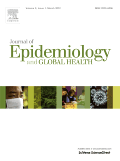
Journal of Epidemiology and Global Health
Scope & Guideline
Fostering dialogue and discovery in the realm of global health.
Introduction
Aims and Scopes
- Epidemiological Research:
The journal publishes studies that explore the distribution and determinants of health-related states or events in specified populations, aiming to identify risk factors and the effectiveness of interventions. - Global Health Challenges:
Focus on addressing pressing global health issues, including infectious diseases, non-communicable diseases, and the impacts of social determinants on health outcomes. - Public Health Policy and Practice:
Research that informs public health policy and practice, including evaluations of health programs, interventions, and health systems. - Methodological Innovations:
Encourages the development and application of innovative methodologies in epidemiology, including statistical modeling, meta-analyses, and systematic reviews. - Health Inequities:
Studies that examine disparities in health outcomes across different populations, particularly those marginalized by socio-economic factors. - Environmental Health:
Research related to the impact of environmental factors on health, including studies on climate change, pollution, and other ecological determinants. - Pandemic Preparedness and Response:
Focus on the epidemiological aspects of pandemics, including surveillance, outbreak investigation, and the effectiveness of public health responses.
Trending and Emerging
- Impact of COVID-19:
Research related to the epidemiology, social impacts, and health outcomes associated with the COVID-19 pandemic is significantly trending, including studies on vaccination, long COVID, and mental health effects. - Non-Communicable Diseases (NCDs) and Lifestyle Factors:
There is an increasing focus on the role of lifestyle factors, such as diet and physical activity, in the epidemiology of NCDs, reflecting a shift towards preventative health strategies. - Mental Health Epidemiology:
Emerging themes in mental health, particularly in relation to pandemics and socio-economic stressors, are gaining traction as researchers explore the psychological impacts of global health crises. - Antimicrobial Resistance (AMR):
Research addressing the rising issue of AMR is becoming more prominent, highlighting the need for effective surveillance, prevention, and policy responses. - Climate Change and Health:
A growing interest in the intersection of climate change and health outcomes indicates a trend towards understanding the health impacts of environmental changes. - Health Disparities and Social Determinants:
There is an increasing emphasis on examining health inequities and the social determinants that contribute to disparities in health outcomes across populations.
Declining or Waning
- Traditional Infectious Diseases:
Research on long-established infectious diseases, such as tuberculosis and malaria, is less frequently published as the journal shifts towards emerging infectious diseases and global health crises like COVID-19. - Localized Health Issues:
Studies focusing exclusively on health issues within a single country or region may be decreasing as the journal emphasizes global perspectives and comparative studies. - Chronic Disease Management:
While chronic diseases remain important, the focus on individual management strategies appears to be waning in favor of broader public health approaches and systemic interventions. - Health Education and Promotion:
Topics centered solely on health education interventions without a robust epidemiological framework are becoming less common, as the emphasis shifts toward evidence-based policy-making.
Similar Journals

EPIDEMIOLOGY AND INFECTION
Championing Open Access to Transform Health ResearchEPIDEMIOLOGY AND INFECTION is a premier open-access journal published by Cambridge University Press, dedicated to advancing the field of epidemiology and infectious diseases. With an ISSN of 0950-2688 and E-ISSN of 1469-4409, this journal has been at the forefront of disseminating impactful research since its inception in 1970. As of 2023, it holds a prestigious Q2 ranking in both the fields of Epidemiology and Infectious Diseases, reflecting its significant contribution to these critical areas of study, with Scopus rankings placing it at #70 in Epidemiology and #163 in Infectious Diseases. The journal aims to publish high-quality, peer-reviewed studies that contribute to our understanding and management of infectious diseases globally. Operating under an open-access model since 2020, EPIDEMIOLOGY AND INFECTION ensures that research is accessible to a wide audience, fostering collaboration and innovation among researchers, professionals, and students alike. With a commitment to excellence, this journal is an essential resource for those looking to stay abreast of the latest developments in epidemiological research and infectious disease management.

Epidemiologia & Prevenzione
Innovating insights in epidemiology and public health.Epidemiologia & Prevenzione is a distinguished journal published by INFERENZE SCARL based in Italy, focused on advancing the fields of epidemiology and public health. Established in 1987, this journal serves as a pivotal platform for researchers, practitioners, and students to disseminate and exchange important findings related to epidemiology, as well as environmental and occupational health. With an HIndex that reflects its growing academic influence, it currently holds a Q3 quartile ranking in both Epidemiology and Public Health, highlighting its relevance in the scientific community. The journal is indexed in Scopus, ranked #368 in the field of Public Health and Environmental and Occupational Health, and #87 in Epidemiology, showcasing its commitment to high-quality research. Although it operates without an open access model, Epidemiologia & Prevenzione remains a vital resource in promoting knowledge and innovation for a healthier society, making it essential reading for anyone invested in these critical areas of study.
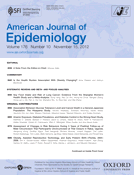
AMERICAN JOURNAL OF EPIDEMIOLOGY
Fostering Dialogue in Epidemiology Since 1921American Journal of Epidemiology is a premier peer-reviewed journal published by Oxford University Press, focusing on the advancement of epidemiological knowledge and methodology since its inception in 1921. With an ISSN of 0002-9262 and E-ISSN 1476-6256, this influential journal serves as a vital resource for researchers and practitioners worldwide, highlighting significant epidemiological findings and fostering dialogue within the field. Ranked in the Q2 category of Epidemiology and holding a commendable 80th percentile in Scopus' ranking, the journal continues to play a significant role in shaping public health policies and practices. Although the journal is not open access, it remains accessible through institutional subscriptions, ensuring comprehensive discourse on pressing epidemiological issues. By continuously publishing high-quality research that informs disease prevention and control strategies, the American Journal of Epidemiology stands at the forefront of epidemiological inquiry, promoting improved health outcomes on a global scale.
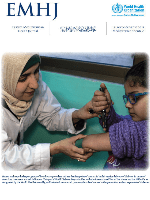
EASTERN MEDITERRANEAN HEALTH JOURNAL
Empowering Communities through Insightful ResearchWelcome to the EASTERN MEDITERRANEAN HEALTH JOURNAL, a premier publication in the field of public health and medicine, published by the WHO Eastern Mediterranean Regional Office. With its ISSN 1020-3397 and E-ISSN 1687-1634, this journal serves as a vital platform for researchers, professionals, and students dedicated to advancing health policies and practices in the Eastern Mediterranean region. Established in 1996 and continuing through 2024, it holds a commendable Q3 rank in the field of Medicine (miscellaneous) and ranks #157 out of 636 in the general medicine category, reflecting its significant contribution to the field, with a 75th percentile standing in Scopus rankings. Although the journal is not open access, it remains an essential resource for those seeking to understand and address health challenges unique to the region, fostering improved health outcomes and policy development. Explore our collection of peer-reviewed articles that shed light on critical health issues and innovative solutions, making a lasting impact in community health.

Lancet Global Health
Fostering collaboration for a healthier future.Lancet Global Health (ISSN: 2214-109X) is a leading open-access journal published by Elsevier, renowned for its commitment to disseminating high-quality research in the field of global health. Established in 2013, this esteemed journal has quickly ascended to become one of the top-ranked publications in its category, achieving a remarkable Q1 ranking in Medicine (Miscellaneous) and placing in the 98th percentile of general medicine according to Scopus. With a focus on innovative research and impactful studies, the Lancet Global Health aims to foster dialogue and dissemination of knowledge across disciplines, addressing pressing health issues effectively. The journal provides open access to its content, ensuring that vital information reaches a broad audience, including researchers, health professionals, and policy-makers. As it continues to bridge gaps in global health research and practice through its rigorous peer-reviewed articles, Lancet Global Health plays a crucial role in shaping the future of health equity and social justice worldwide.
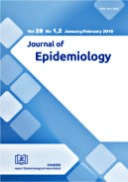
JOURNAL OF EPIDEMIOLOGY
Empowering the epidemiology community with knowledge.JOURNAL OF EPIDEMIOLOGY is a premier peer-reviewed journal published by the JAPAN EPIDEMIOLOGICAL ASSOCIATION dedicated to advancing the field of epidemiology and public health. With an impressive impact factor and recognition as a Q1 journal in both the epidemiology and miscellaneous medicine categories, it ranks in the top percentile of its field, occupying the 28th position out of 148 journals in epidemiology according to Scopus. Since its inception in 1991, this open access journal has provided researchers, practitioners, and students with valuable insights and findings that shape healthcare policies and practices globally. The journal covers a broad range of topics within epidemiology, fostering a multidisciplinary approach to understanding and addressing health challenges. With a commitment to high-quality research and accessibility, the JOURNAL OF EPIDEMIOLOGY plays a crucial role in the dissemination of knowledge and best practices within the public health community.

Journal of Research in Health Sciences
Advancing global health through innovative research.Journal of Research in Health Sciences, published by Hamedan University of Medical Sciences, is a prominent international journal that has been disseminating research findings in the fields of public health, epidemiology, and health policy since its inception in 2009. With an ISSN of 2228-7795 and E-ISSN 2228-7809, the journal has established a solid reputation, currently ranked in the third quartile (Q3) across several categories related to health, as noted by Scopus. The journal serves as a vital resource for researchers, professionals, and students, offering rich insights into the complex interactions within health sciences and facilitating the dissemination of innovative research that addresses pressing health challenges. The journal's reach extends beyond Iran, contributing to global discourse and promoting evidence-based practices in health. By providing an open-access platform, it ensures that vital information is readily accessible to the academic community and beyond, fostering a collaborative environment for advancing health sciences research.

EUROPEAN JOURNAL OF EPIDEMIOLOGY
Exploring critical trends in public health and epidemiology.The European Journal of Epidemiology is a premier peer-reviewed journal published by Springer, specializing in the vast and critical field of epidemiology. With its ISSN 0393-2990 and E-ISSN 1573-7284, this journal has been a leading platform for disseminating high-quality research since its inception in 1985, encompassing a comprehensive range of topics pertinent to public health and epidemiological science. Proudly based in the Netherlands, the journal has secured a prestigious Q1 ranking in the field of Epidemiology and boasts an impressive Scopus rank of #8 out of 148 in its category, placing it in the 94th percentile among its peers. With a commitment to advancing knowledge and practice in epidemiology, the journal provides invaluable insights for researchers, healthcare professionals, and students, facilitating a better understanding of disease distribution and determinants in populations. While it operates under a subscription model, the European Journal of Epidemiology continues to uphold its reputation as an essential resource for innovative research and public health advancements through the years.

PEDIATRICS
Transforming child health through rigorous research.PEDIATRICS, published by the American Academy of Pediatrics, stands as a leading journal in the field of pediatrics, perinatology, and child health, with a remarkable impact factor reflecting its significant contributions to the healthcare community. Since its inception in 1948, PEDIATRICS has been dedicated to advancing pediatric knowledge and practice, disseminating high-quality research that shapes policies and improves child health outcomes. With an impressive ranking of #5 out of 330 in its category and occupying the 98th percentile, this journal is essential reading for researchers, clinicians, and students alike, fostering a comprehensive understanding of child health challenges and innovations. Although it does not operate under an open-access model, its rigorous peer-review process ensures that each publication meets the highest standards of scientific excellence. For those passionate about improving pediatric care and advancing research, PEDIATRICS remains a cornerstone resource that continues to influence pediatric practice and policy worldwide.
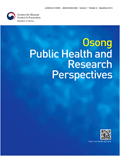
Osong Public Health and Research Perspectives
Empowering global health through open access research.Osong Public Health and Research Perspectives is an esteemed open-access journal dedicated to advancing knowledge in the fields of Public Health and Infectious Diseases. Published by the Korea Disease Control & Prevention Agency, this journal serves as a vital resource for researchers, professionals, and students alike, addressing significant health challenges and disseminating research findings that contribute to public health advancements worldwide. Recognized for its impact, the journal boasts a Q2 ranking in both Infectious Diseases and Public Health, Environmental and Occupational Health categories, as well as a prestigious 94th percentile in Scopus rankings, underscoring its influence and quality. Since its inception in 2010, Osong Public Health and Research Perspectives has provided open access to critical research, ensuring that vital information is readily available to enhance public health initiatives and policy-making. With a commitment to upholding high academic standards, this journal continues to be a cornerstone for collaborative research and discourse within the global health community.